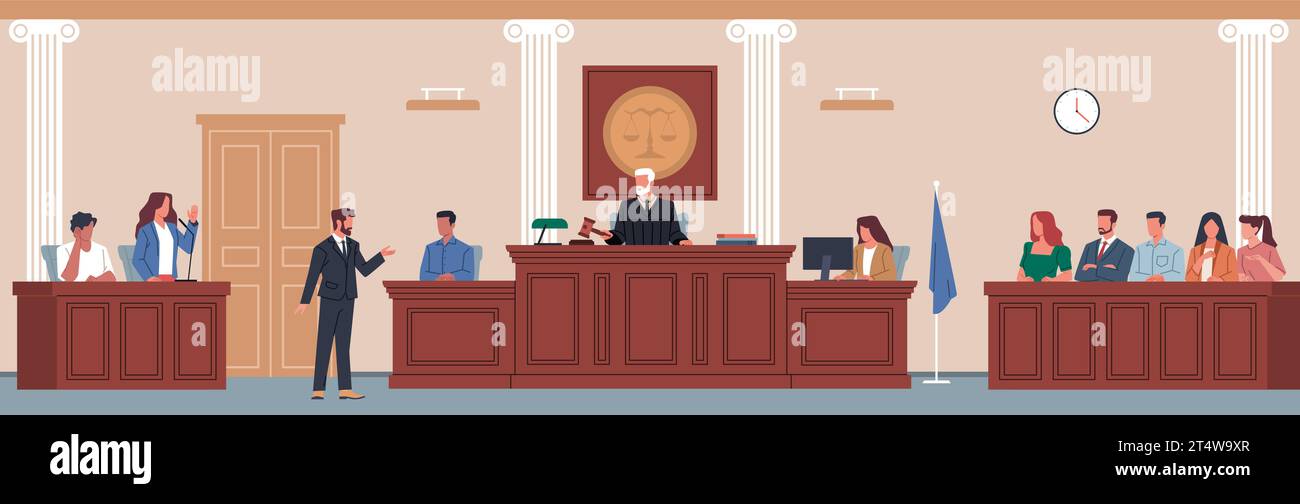Graphics in trial presentations help simplify legal arguments.
Graphics in trial presentations help simplify legal arguments.
Blog Article
Exactly How Test Presentations Enhance Your Debate and Encourage Jurors
Trial discussions act as an essential device for improving legal debates and convincing jurors. By integrating visual help, narrative frameworks, and emotional engagement, lawyers can develop a compelling case that resonates on several levels. The calculated use visuals not just makes clear complex details yet also catches jurors' interest a lot more effectively than words alone. Nevertheless, the art of narration plays a similarly essential role in transforming valid evidence right into a compelling narrative, shaping jurors' assumptions - trial presentations. Understanding these aspects can dramatically affect trial results, increasing the inquiry of just how each element contributes to this detailed dynamic.

Value of Visual Help
Visual aids play an essential function in boosting the effectiveness of test presentations, as they can substantially increase target market engagement and retention of information. In the context of a trial, where jurors are charged with processing facility details, visual aids serve to simplify and make clear bottom lines. Graphes, charts, and pictures can communicate information and ideas that might otherwise bewilder or perplex jurors, enabling for a much more straightforward understanding of the proof presented.
In addition, visual aids help in keeping juror attention throughout the procedures. By damaging the dullness of spoken statement, these devices can stress essential arguments, making them more unforgettable. Reliable visual help can additionally evoke psychological responses, which can be crucial in convincing jurors to align with the presenter's narrative.

Crafting Engaging Stories
An engaging story is crucial in test discussions, as it serves as the backbone of efficient persuasion. It allows lawyers to weave with each other realities, proof, and psychological elements right into a systematic tale that reverberates with jurors. This narrative structure enables jurors to comprehend the intricacies of the instance while guiding them with the attorney's disagreement.
To craft a compelling story, lawyers should concentrate on clearness and comprehensibility. This includes developing a clear lead character-- frequently the customer-- and detailing their journey through the events in concern. Offering the facts in a rational sequence enhances comprehension and keeps involvement. In addition, using brilliant summaries can create psychological images that help jurors picture the events, making the story more unforgettable.
In addition, integrating key motifs throughout the discussion enhances the core message and aids in retention - trial presentations. The story should not just share details yet also evoke a feeling of justice, highlighting the stakes entailed. Eventually, a well-constructed narrative fosters a link between the jurors and the case, placing the attorney's disagreement as both reputable and compelling, thus enhancing the likelihood of a positive verdict

Involving the Court Emotionally
Efficient court involvement rests on the lawyer's capability to get in touch with jurors on a psychological level. This link can considerably influence jurors' perceptions and their best decision-making. Making use of psychological appeals permits lawyers to humanize the situation, transforming abstract legal concepts into relatable experiences. By offering real-life tales or testimonials, lawyers can stimulate empathy and concern, promoting a much deeper understanding of the problems at stake.
Aesthetic help, such as pictures or video clips, can additionally improve psychological interaction, offering jurors with vivid representations of the case's human elements. Crafting a story that highlights the struggles and accomplishments of the people included guarantees that jurors see beyond the lawful disagreements and identify the human effects of their decisions.
Additionally, tone and body movement play a crucial function in communicating emotion. A lawyer's passionate distribution can reverberate with jurors, strengthening their emotional financial investment in case. It's necessary to balance emotional appeals with factual proof, making certain that jurors feel obliged to act while remaining grounded in the fact. Inevitably, a mentally engaged court is extra likely to be persuaded, making psychological connection a crucial my review here element of reliable trial discussions.
Structuring Your Discussion

The body of the presentation need to be logically fractional into key factors, each supported by compelling evidence. It is valuable to make use of narration methods to weave truths right into a story that jurors can quickly adhere to. Visual help, such as charts and video clips, can improve understanding and involvement, assisting to highlight crucial pieces of proof.
Real-World Instance Studies
Analyzing real-world case researches provides invaluable understandings right into the art of trial presentations and persuasion. The protection group efficiently used a technique that incorporated high-profile specialist testaments with multimedia discussions, which astounded jurors and ultimately influenced their decision.
Another notable example is the "McDonald's Coffee Instance," where the complainant's attorneys utilized graphic photos of the injuries suffered by Stella Liebeck. trial presentations. This stark visual evidence played a vital duty in sharing the seriousness of her burns, causing a considerable jury award. Such instances demonstrate that impactful test presentations commonly hinge on the efficient combination of visuals and storytelling to stimulate emotional reactions from jurors
Moreover, the "Casey Anthony Test" highlighted the relevance of narrative coherence and trustworthiness. The prosecution's failure to develop an engaging timeline diminished their persuasive power, emphasizing the requirement of a well-structured discussion. Analyzing these situations exposes that successful trial presentations call More about the author for critical preparation, psychological involvement, and the capacity to resonate with jurors' values and ideas.
Final Thought
Test discussions dramatically improve debates and encourage jurors with the calculated use of visual aids, compelling stories, and psychological involvement. A well-structured discussion equilibriums psychological charms with valid evidence, inevitably resonating with jurors' worths.
Report this page